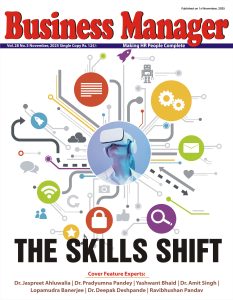How has the gig economy reshaped traditional notions of employment and work?
DK Over the last few years, I have closely observed how the gig economy has reshaped the way people think about work. Unlike earlier times, where job security and long-term association with one employer were the norm, today’s workforce is moving towards flexibility and independence. This change has largely been driven by uncertainty, evolving preferences of Gen Z, and the realization that any job can end abruptly. People now want to take charge of their careers and lives, rather than depending on circumstances they cannot control.
At the same time, the shift is not uniform across all industries. Manufacturing organizations, for instance, will continue to remain traditional employers. They need stable, sustainable employment models to run large-scale operations. However, in many other sectors, I see a strong trend of employers reducing fixed costs by preferring assignment-based resources. These resources are not long-term employees but professionals...










